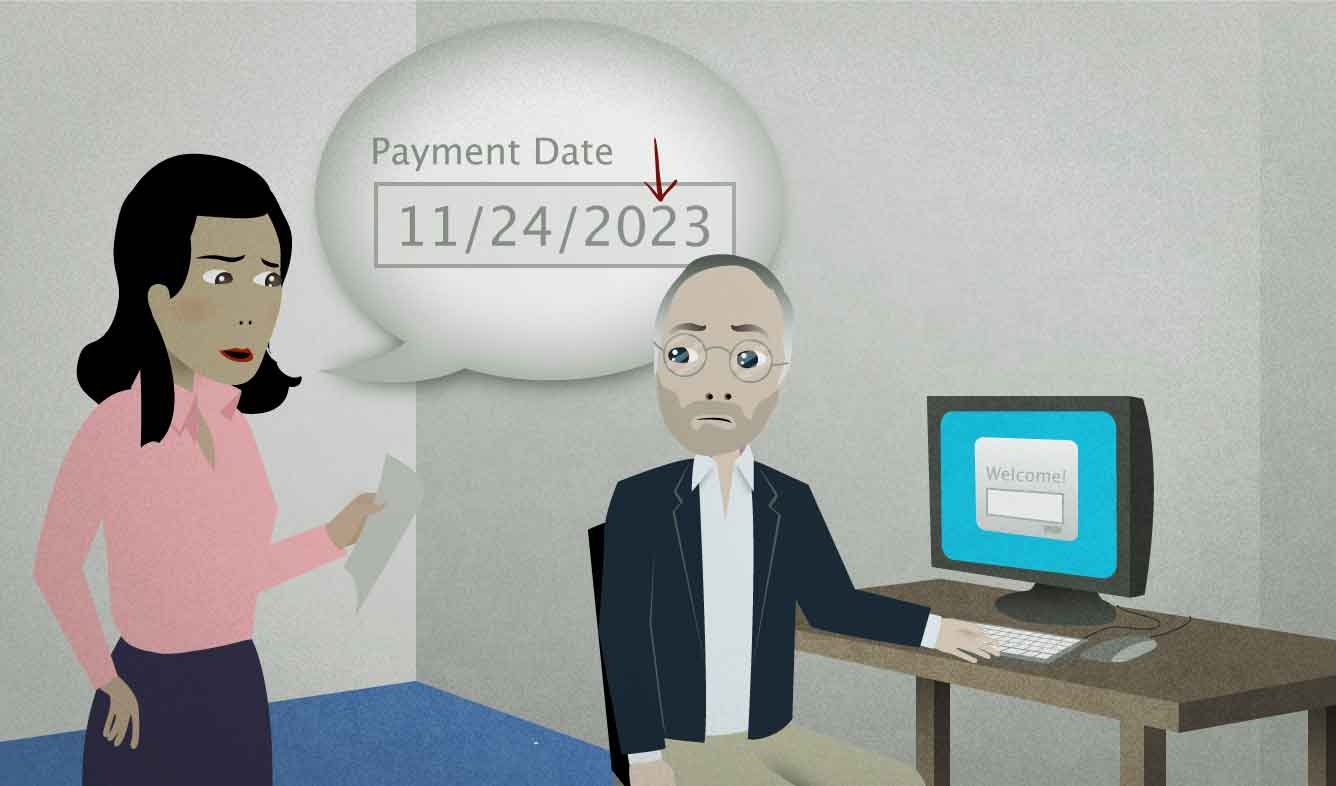“It must have been caused by someone entering the date incorrectly.”
You've discovered an error in an invoice at work. You've explained the error to your boss. You try to guess why it happened.
It must have been caused by someone entering the date incorrectly.
Want Video and Sound? Follow us on YouTube

(something) must have (done something)
You can make guesses about things that happened in the past with the phrase "must have ___":
A: Where are Deanna and Jun?
B: They must have left already.
People use "must have" when they have a pretty strong reason or evidence for thinking something. You don't use "must have" when you're just making a guess about something you don't know about.
(something) was caused by (something)
When one thing (Event A) causes another thing (Event B), you can say "(Event B) was caused by (Event A)". For example:
Police believe that the fire was caused by a break in the gas line.
This means that a break in the gas line made the fire happen.
(someone) (doing something)
This is a common pattern in English:
I don't like people joking about people with disabilities.
In this case, the phrase "people joking about people with disabilities" acts as a noun. This sentence means that you don't like the entire idea of people joking about this topic.
Here are some other examples:
I remember my mom telling me not to talk to strangers when I was a kid.
If athletes taking drugs is such a big problem, why don't the sports commissions require more frequent drug testing?
enter (some information) incorrectly
When you write or type information into a form, you are "entering" that information:
Enter your name, email address, and password.
If the information you enter is right, then you have "entered it correctly". If not, you've "entered it incorrectly".
